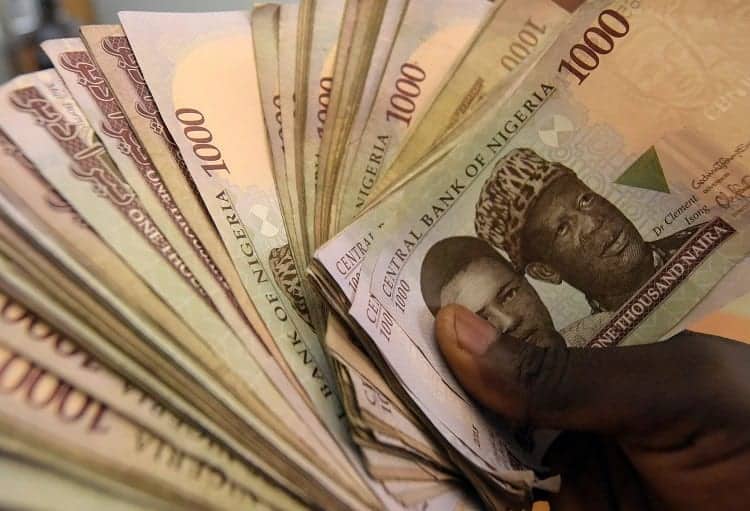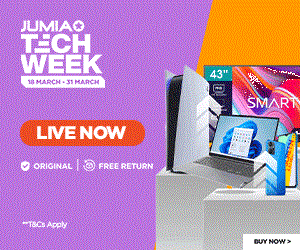You must have heard about the cashless policy of the Central Bank of Nigeria, CBN by now. Well, if you have not, it is a policy aimed at reducing the volume of physical cash circulating in the Nigerian economy and encouraging e-payment options. Core to the cashless (more like cash-lite) policy is the introduction of daily bank deposit/withdrawal limits above which account holders pay huge transaction costs.
Most articles on the cashless policy so far have focused on either announcing the policy or highlighting the challenges facing it.
Very few have actually focused on what payment and transaction options are available to you if you require transactions above the daily limits without paying the huge cash handling charges or if you just want to go cashless or cash-lite. In this article we will be highlighting some of these e-payment and e-transaction options.
Cashless Policy Overview
Before going through the payment/bank transaction options, let us first see what the cashless policy is all about.
The cashless policy was first introduced in January 1, 2012 with a 10% handling cost placed on cash deposits and withdrawals above 150,000 Naira for individuals. Processing cost was pegged at 20% for cash deposits and withdrawals above 1,000,000 Naira for corporate accounts.
The CBN later watered down the cashless policy on June 1, 2012 by increasing the limit to 500,000 Naira for individuals and 3,000,000 Naira for corporate accounts and reducing processing fee to 3%.
In the latest refresh of the cashless policy, the cumulative daily limit for cash deposit and withdrawal remains ₦500,000 for individual accounts and ₦3,000,000 for corporate accounts. However, while the processing fee for withdrawal remains 3%, processing cost for cash deposits has been put at 2% for individuals. Corporate accounts attract 3% for cash deposits and 5% for cash withdrawals.
Note that the service charge is borne by the account holder, whether deposit or withdrawal.
So, you can withdraw above the limit, but it will be expensive. For example, if an individual withdraws ₦1,000,000 in a day, the first ₦500,000 will be handled free and the excess ₦500,000 will attract a 3% handling charge (i.e ₦15,000). So, under the cashless policy you will be debited for ₦1,015,000 if you withdraws ₦1,000,000.
If someone deposits ₦1,000,000 in your individual account, you will pay 2% charge on the extra ₦500,000 (i.e ₦10,000). So, ₦990,000 will be credited to your account.
This latest review takes effect in Lagos, Ogun, Kano, Abia, Anambra and Rivers states and Abuja on September 18, 2019, and will apply nationwide starting March 31, 2020.
To avoid the huge charges you have to use e-payment and e-banking options. Note that if a third party deposits cash to your bank account it is you (account holder) that will bear the transaction cost.
Go Cashless with Alternate Banking Channels
Now that you have some handle on the cashless policy, let us now go through some of the other channels available to you if you want to go cashless or cashlite.
Internet Banking
Internet banking, also called online banking will enable you handle your banking transactions online. Most Nigerian banks now have internet banking platforms.
Internet banking platforms will enable you view account balances, view account activity/statement, check exchange rates, Transfer funds between your accounts within the same bank, and paying bills (DSTV, water, airtime, etc) and taxes.
By increasing your internet banking security with an internet banking token or one-time passwords from your bank, you will be enabled to handle more transactions online.
For example, with an internet banking token, you will be able to transfer funds to other accounts within and outside your bank on your internet banking platform.
So, if you are serious about going cashless, internet banking with an internet banking token or one-time passwords is essential, as it will enable you easily lodge money into other people’s account in any bank in Nigeria.
In addition, you can transfer funds way above the limit without having to pay the cut throat cash handling costs. For example, you can use internet banking to lodge your annual rent into the account of your landlord instead of paying cash and incurring huge cash handling costs.
Visit your bank and tell the customer care person that you want internet banking, they will give you a form to fill. You should also ask for an internet banking token (if your bank offers one) as it enables more transactions. Your bank will sell the token to you. GT Bank sold the internet banking token N3,000 the last time we checked.
Mobile Banking
Mobile banking can come in different forms. It can come in the form of SMS banking where a customer uses SMS to handle banking transactions like transferring money and checking balance or USSD banking where codes like the 737 banking by GTBank is used to handle banking transactions.
Mobile banking can also be done via mobile apps for customers who have smartphones. If you own a smartphone, simply download the mobile banking app of your bank from the app store to send money cashless.
Mobile Banking app just is like internet banking except that this time the transaction is done with a mobile phone app. It enables you use your mobile phone for your banking transactions and bills payment.
Most mobile banking platforms will enable you view account balances, view account statement, Transfer funds between your accounts within the same bank, and paying bills (DSTV, water, PHCN, airtime, etc) and taxes.
Mobile banking enables you go cashless by allowing you pay some of your bills without having to carry cash. This will enable you keep your daily cash transaction limit safe for other transactions. Visit your bank’s customer care area for details of mobile banking.
Payment Cards and POS
Internet banking and mobile banking are more banking biased. They only support limited payment options.
If you are looking for e-payment channels that will enable you easily make payment for goods and services without need for cash, then you need to think payment cards and POS.
If you want to easily shop cashless at super markets, shopping malls, boutiques, etc payment cards are good options.
Payment cards are cards (usually plastic) that enable you pay for goods and services without the need for cash. Your ATM/debit card from your bank are payment cards so also are cards like Visa, Mastercard, InterSwitch Verve, etc.
These payment cards can be used to pay for goods and services at any merchant location where there is a supported PoS. POS (Point of Sale) is a device that enables a seller receive payment electronically via e-payment channels like payment cards.
So, if a super market, shopping mall, filling station, travel agency, salon, boutique, electronic store, etc has a PoS device, you can do business with them cashless.
Just give your card to the cashier, he/she swipes it on or plugs it in the device and enters the value of your purchase into the device.
You confirm and authorize payment for goods or service by entering your PIN and funds covering your purchase will be transferred from your account to the account of the merchant.
It is that simple. Some e-payment cards can support up to N500,000 daily limit. Some payment cards can also be used for online shopping.
Payment cards are a core part of a cashless Nigeria. Ask your bank for your ATM/debit card. Walk into your bank and talk to the customer care people.
Mobile Money
Mobile Money is at the core of the CBN’s cashless policy. It allows users create e-wallet for storing funds on their phone. Once value is stored on your mobile phone, you can use it to pay for goods and services at merchant locations that support mobile money.
Services like OPay and MTN MoMo are emerging leaders in the mobile money space.
The philosophy behind mobile money is that most Nigerians now have mobile phones (not as many have bank accounts).
So, if we can have an easy to use electronic payment solution that enables people pay for goods and services with their mobile phone we will achieve a cashless or cash lite economy faster.
Subscription for mobile money can be done at a supporting bank or at agent locations. You can also simply download the mobile app of the mobile money service.
However, mobile money still appears experimental as the only place we see mobile money is on TV adverts. However, the likes of MTN MoMo and OPay helped by recent CBN policies seems to be moving things forward.
ATM, Automatic Teller Machine
ATM may not be seen as important to a cashless Nigeria, since most of us only use them to withdraw cash.
In fact, I have argued before that ATM machines are leading to more cash into the system, since it makes withdrawing cash very easy and convenient.
However, it is important to note that there are other cashless transactions that can be done at ATM machines.
Some ATM machines can be used to pay for airtime and pay some utility bills. You can also do money transfer at an ATM machine.
So, next time you visit an ATM machine try to checkout its cashless transaction options. Of course, you need an ATM/debit card to use an ATM machine. Visit the customer care person at your bank and ask for one.
So, there you have it, your options for going cashless or cash lite. The CBN cashless policy will reduce corruption, leakages, wastage, and money laundering. It will also create jobs, support it.
More e-payment content
- Electronic Payment in Nigeria
- Internet banking security tips
- Electronic payment: PIN security basics
- ATM/Debit card security tips
- InterSwith ATM Shops & Sites
- InterSwitch Verve card for cashless payment
- MTN Mobile Money Service
- UBA U-Mo Mobile Money Service
- M-Teller Mobile Money Service
- Google Wallet







